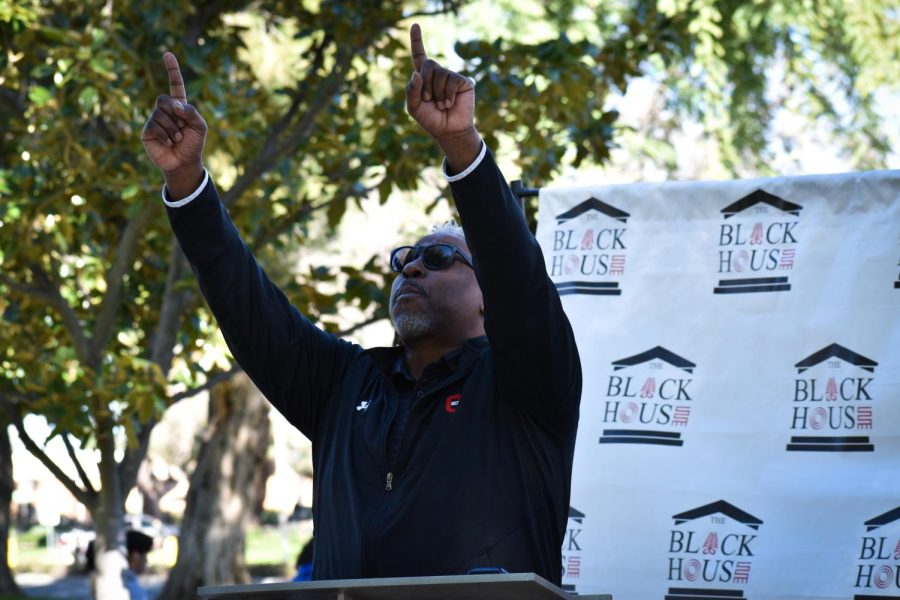CSUN celebrates Black History Month at Matador Square
February 15, 2023
The beginning of Black History Month was recognized with an opening ceremony on Wednesday, Feb. 1, at Matador Square.
This year’s theme is “Black Resistance,” honoring and commemorating the social movements against oppression, racism and segregation.
“I am somebody, and so are you,” Cedric Hackett, assistant professor in the Africana studies department and director of the DuBois-Hamer Institute for Academic Achievement, said.
The event was organized by the Africana studies department, the CSUN Black House, University Student Union and CSUN’s College of Social and Behavioral Sciences.
A moment of silence was held for Tyre Nichols, who died on Jan. 10 after being assaulted by five law enforcement officers three days earlier, according to multiple video recordings released by the Memphis Police Department. Five former Memphis police officers have been charged with second-degree murder in Nichols’ death, according to a Jan. 26 article from The New York Times.
Renowned percussionist Curtis Byrd was one of the special guests featured at the ceremony, delivering a rhythmic component to the celebration.
During his performance, Byrd distributed instruments to members of the CSUN community encouraging them to participate. He spoke about how rhythm is powerful and not about color or race.
“Music brings people together,” Byrd said. “It’s a language of one, and at the end of the day we’re all one.”
Following the percussionist, CSUN alumnus Justin Andrew Marks took the stage and discussed issues affecting the Black community such as police brutality, mass incarceration and maternal mortality.
“If they’re talking about reform and they’re talking about progress, look to see if CSUN’s budget for Black students has increased,” Marks said. “Until we get to a CSUN that can be a cop-free zone, don’t call it progress, call it neoliberalism.”
To close the ceremony, red, black and green roses were placed on the Matador Statue, as a symbol and tribute to the Pan-African flag.
“Africana studies is a philosophical and historical tradition that is important for institutions to make available and accessible toward students,” Demitrius Evans, an undergraduate advisor at CSUN’s College of Social and Behavioral Sciences, said. “You have these events happening across the nation where Black studies might be under attack or underappreciation. Hence, we need more institutes to show more support for Africana studies.”
